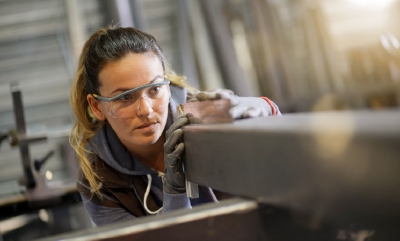Australia’s skills system still treats human capabilities as “soft”—and it’s costing productivity, mobility and fairness. It’s time to name these skills, value them properly and embed them in how we educate, hire and recognise.
Let’s retire one of the most damaging clichés in our labour market: “soft skills.” There is nothing soft about de‑escalating a tense situation, coordinating across cultures, communicating with clarity, or exercising ethical judgment under pressure. These are the hard edge of modern workplace performance—yet our language, and too often our systems, keep treating them as optional extras.
When we downplay these capabilities, we don’t just insult the people who use them every day; we distort how value is created at work. We overlook training that lifts real world performance. We reduce mobility for workers whose strengths don’t come wrapped in a technical certification. And we send the wrong signals to educators, employers and regulators about what really matters.
This problem is not abstract. In feminised sectors such as aged care, disability support, early childhood education and community services, capabilities like judgment, coordination, cultural competence and reflective practice are used constantly and at high levels, often in high-stakes situations. When those capabilities are treated as “natural” or “intuitive” rather than learned and improvable, they become invisible in job design, undercounted in assessment and undervalued in society. The people who exercise them, particularly women, are the ones who pay the price.
With reporting recently released by Jobs and Skills Australia shows that only 1 in 5 workers are in relatively gender-balanced occupations, sectors like the care economy are emblematic of the gender divide in Australian workplaces. Social and cultural norms continue to have a strong influence on our children and their career choices. As they transition into tertiary education, gender segregation becomes persistent making shifting occupational gender segregation even harder. If we want a fair, productive and future ready skills system, we need a structural reset. That starts by defining “skill” in a way that reflects how work gets done today. A modern definition treats skill as a valued, purpose driven human ability that is acquired through learning and practice. It is observable, improvable and exercised in context. This isn’t semantics. It is the foundation for how we recognise, teach and reward what people can actually do.
A joined-up tertiary education sector will ensure Australia has the prerequisites necessary to build a better-skilled and more adaptable workforce for the Australian labour market, both present and future.
With a common skills language, Australians can have confidence that education and training providers will understand the skills they already have and support them to gain the skills they want. Employers can be confident about what they will really get from an employee’s qualifications. Regulators and funders can be assured that qualifications are building both human and technical skills on equal footing.
This is not just about fairness. It’s a growth strategy. A skills-first system helps technicians translate expertise into new contexts; helps migrants have prior learning recognised; helps care workers step into leadership; helps employers hire confidently for capability and potential, not just credentials; and helps policymakers invest where capability is actually built.
Jobs and Skills Australia is taking concrete steps to modernise how we define and value skills in the AI era, with a strong focus on gender and equity. We are embedding a single, contemporary definition of skill across our work - one that recognises skills as human, dynamic, and purpose driven. This definition has the opportunity to be integrated into guidance and assessment frameworks to ensure consistency and clarity.
We are working to align tertiary systems so that recognition of prior learning is portable and stackable across VET, higher education, and work, removing the need for people to start from scratch when they transition between jobs due to economic shifts. This relies on the development of a National Skills Taxonomy. This new platform seeks to unmask those skills currently in the shadows, and clearly link them to way we learn, work and develop, pushing beyond skills being learnt once and done to being able to see the progression of a skill in a person’s lifetime. This creates a foundation for innovation by industry and education providers and ensures that all skills are visible and valued.
Australians expect a system that recognises what people can do, not just what’s easily measured. They expect the skills that hold a ward together at night, or prevent a conflict from escalating, to carry weight in hiring, progression and recognition. If we get the definition right, align our tertiary system and build a National Skills Taxonomy fit for purpose, we can deliver exactly that.
Stop calling them soft. Start valuing them properly—and make that value real in how Australia learns, works and thrives.
Megan Lilly is the Deputy Commissioner of Jobs and Skills Australia.





